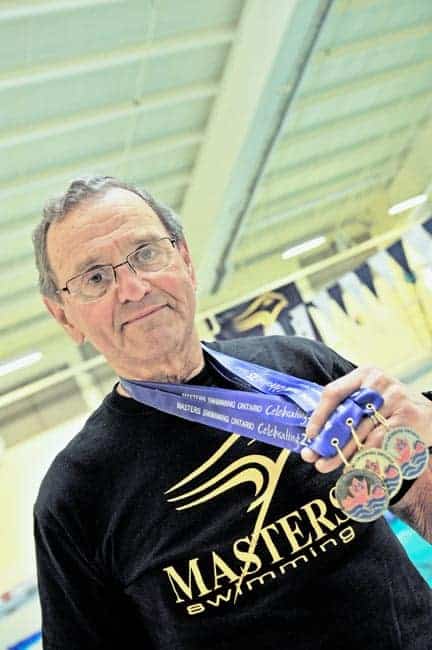![Canada’s most famous astronaut was the keynote speaker at Home Hardware’s annual spring market in St. Jacobs, applying his experience as captain of the International Space Station to business management on Earth.[Will Sloan / The Observer]](https://www.observerxtra.com/content/images/wp-content/uploads/2014/04/post_hadfield.jpg)
When Chris Hadfield was nine years old, he watched Neil Armstrong land on the moon and, like millions of kids, decided to become an astronaut. Alas, he faced an obstacle: Canada did not have a space program.
“I was setting my sights on something that was impossible,” Hadfield said at Home Hardware’s annual spring market on Tuesday. “But even then I realized, ‘Well, y’know, just look at what happened today on the moon – impossible things can happen. The only thing you can really control about impossibility is getting yourself ready.’”
Hadfield’s social media presence while in orbit made him the most internationally famous Canadian not named Rob or Justin. On earth, Hadfield is using his experience as captain of the international space station to offer advice on leadership and teambuilding at corporate events – including Home Hardware’s 50th anniversary market in St. Jacobs.
For instance: four-and-a-half years of training with his crew prepared Hadfield and his international colleagues for every conceivable crisis, so that when problems did arise, they were ready. The key to success, Hadfield said, is to “visualize failure.”
“People talk about visualizing success all the time – I don’t really understand it. If success happens, that’s great – visualizing it doesn’t make it happen. Things go wrong all the time. … Visualize [failure] realistically, and then practice, as realistically as you can, how you’re going to avoid failure from happening.”
During their half decade of preparation, Hadfield and his crew “trained to take out each other’s appendix and reprogram the computers onboard and make an IMAX movie and do spacewalks.”
He explained, “You can never be too competent, and things you were expert in a little while ago change over time. … Every skill that you can give to your team of people … improves the odds that you will survive, that you will be successful in whatever you’re trying to accomplish.”
However, he added, competence extends beyond the crew and into management.
“You’ve all worked for someone who is incompetent, and it is immediately apparent if they haven’t done their homework. … If you were ever going to be trusted and expect yourself to do a good job leading anybody, then you need to do the work in advance.”
For the astronauts, four-and-a-half years was no small commitment. What kept the crew going, Hadfield said, were the goals they united behind – much like how, 50 years ago, 122 independent hardware stores pooled their resources into a co-op that became one of Canada’s most successful corporations.
“I set overall objectives, just like when I was a little kid,” said Hadfield. “Once you’ve given people the skills, they know where they’re trying to head, then you can set ‘em loose. They may not go exactly the same path you’d go, but they know which direction they’re headed, and you can trust them to make decisions.”
Realistically speaking, few of today’s nine-year-olds who idolize Hadfield will become astronauts. How does one sustain optimism when one has set a goal that is almost unreachable?
Hadfield admitted, “Really, I decided a long time ago, ‘I’m never going to fly in space, the odds are just too terrible. I cannot make that the measure of my life. Instead, that’s just a distant draw, like a magnet pulling me that way, and I’m going to enjoy all the stuff that happens along the way.’”









